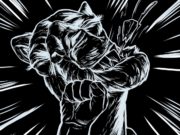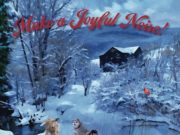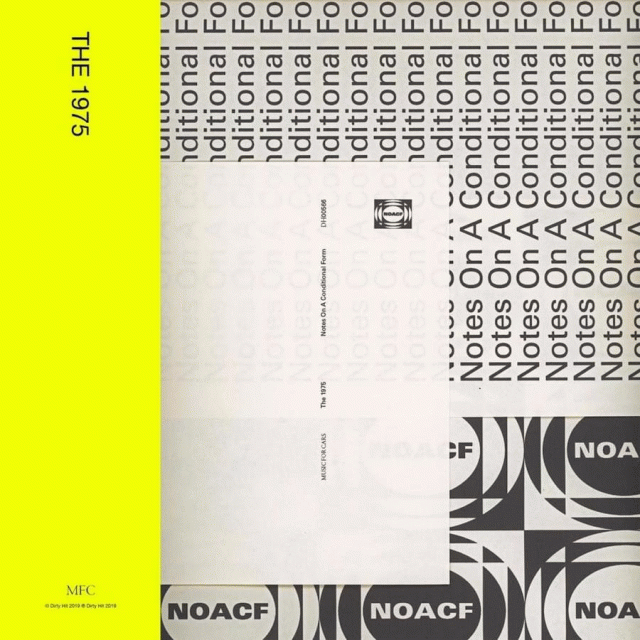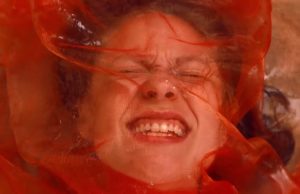You’d think a global pandemic, the accompanying economic downturn and the implosion of America would make for a quiet spring. But the numbers don’t lie: Based on the amount of reviews, stories, videos and other stuff being posted, I’ve never been busier. In fact, it’s been so crazy around here that I never even got around to listing April’s exceptional albums. So before another month gets away from me, I put them together with May’s outstanding picks into this double-strength alphabetical list. As always, click on the album cover to read more and listen to the music. Let’s get busy:
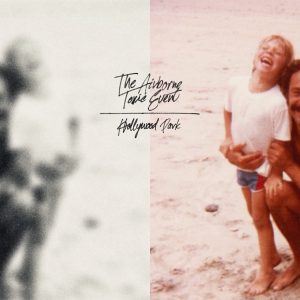 The Airborne Toxic Event
The Airborne Toxic Event
Hollywood Park
As Tolstoy taught us: “Every unhappy family is unhappy in its own way.” But I doubt even he could have concocted an upbringing like the one experienced by Airborne Toxic Event frontman Mikel Jollett — as chronicled in his sixth and most personal album Hollywood Park. Sparked by the death of his father and accompanied by an autobiography of the same name, the dozen-song disc reflects on Jollett’s early childhood in the notorious Synanon cult, followed by a young life scarred by poverty, hardship, drugs and emotional abuse. It could easily have been a maudlin downer that would make Lou Reed’s Berlin resemble a fairytale, but in Jollett’s capable hands it becomes a stirring, cathartic work of survival and eventual redemption, set against a backdrop of swelling, soaring heartland rock grandeur reminiscent of an artsier Bruce Springsteen. “You tell me that you wanna know my story,” Jollett says at one point. “I promise you it’s boring.” Not a chance.
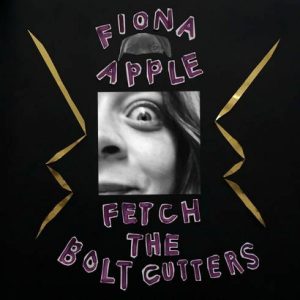 Fiona Apple
Fiona Apple
Fetch The Bolt Cutters
Rebirth. Rejuvenation. And perhaps most of all, reinvention. Recorded in, around and with her Venice Beach home, the 13-song Fetch The Bolt Cutters finds Fiona Apple tossing out the rule book to deconstruct and rebuild her songwriting from the ground up. She mixes genres wildly, bouncing between rock and pop and jazz and blues and soul and classical and avant-garde. Along with regular instruments like piano, bass and drums, these elastic songs are filled with everything from stomping and clapping to barking dogs, the sound of roasted seed pods and Apple tapping on a box that contains her dead dog’s ashes — all the better to support her fearsome and powerful vocals, which can shape-shift instantly from a shivery bray to a soulful croon to a sinister snarl to a playground sing-song. Her lyrics are equally boundless and boldly unconventional, tackling both the intimately personal and the universally political with unflinching honestly, poetic beauty and scathing humour. In a nutshell (or a seed pod): It’s one of the most adventurous, distinctive and fascinating albums you’ve heard lately. And one of the best albums of the year.
 Nicole Atkins
Nicole Atkins
Italian Ice
Take one soulful, stylish and supremely talented singer. Add a cast of legendary first-call session cats and ultra-hip VIPs. Mix in a historic studio that’s been the setting for decades of classic music. Spread over a richly varied slate of songs that encompass everything from pop-noir to southern soul. Incorporate timeless songwriting traditions. Top with fresh contemporary vibes. Chill and serve. You can’t miss with a recipe like that. Or at least New Jersey artist Nicole Atkins can’t. Sample her fifth full-length Italian Ice and tell me this tasteful offering doesn’t go down smooth and leave you wonderfully satisfied. Nostalgic without coming off dated, accessible without pandering to trends, stylistically diverse but united by Atkins’ larger-than-life persona, this is a smoky, self-assured and seductive throwback to the glory days of ’60s and ’70s soul and pop. Not to mention an album that’s every bit as cool as its title. You’ll be back for seconds.
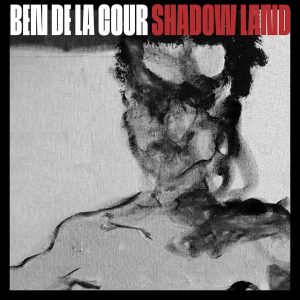 Ben de la Cour
Ben de la Cour
Shadow Land
“I first heard the word of God when I was eight years old / He told me to take a carving knife and hold it to my brother’s throat.” So claims Ben de la Cour — with no small dose of pride, I might add — a few seconds into his fourth album Shadow Land. In my trade, that is what as known as a punchy lede. And it’s just the beginning of this deeply dark, deeply disturbing, deeply moving and deeply satisfying slab of roots-rock and Americana from one of the more terrifically and terrifyingly talented songwriters to come down the pike in way too many years. With a hardened heart, a troubled soul, a jaundiced eye, a razor wit and a voice like crushed gravel, de la Cour delivers desperate, richly detailed narratives of sin and salvation, crime and murder, drugs and booze, love and longing, and all the other good stuff that people life for and die over. Then he sets these mesmerizing tales against a musical backdrop that masterfully encompasses everything from spaghetti-western twang, barn-burning roots-rock and gnarly stomp-blues to graceful piano balladry and fingerpicked acoustic-guitar folk — all recorded in Winnipeg with producer Scott Nolan and a pickup band of local players, no less. When it’s all said and done, you’ve got an album that can hold its own next to the likes of Steve Earle and Townes Van Zandt. That might not be the word of God, but it’s close enough for me. And for you.
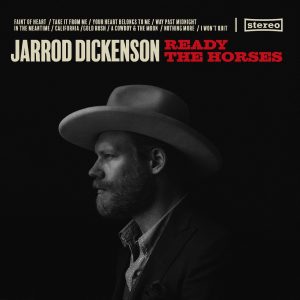 Jarrod Dickenson
Jarrod Dickenson
Ready the Horses
Texas troubadours are a nickel a dozen. Even great ones aren’t exactly hard to come by. So you have to go the extra mile to put some distance between yourself and the rest of the pack. On his third full-length Ready the Horses, singer-songwriter Jarrod Dickenson pulls off that neat trick by decorating his soulful melodies, dusty vocals and earnest delivery with noisy guitars, thumping drums, boisterous horns and rich organs. Half the resulting songs feel like you’re living it up at the roadhouse on Saturday night with Nathaniel Rateliff and Tom Waits — while the other half feel like you’re trying to live it down on Sunday morning. Happy trails.
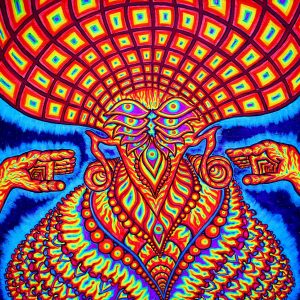 The Dream Syndicate
The Dream Syndicate
The Universe Inside
Steve Wynn and The Dream Syndicate are making up for lost time. In more ways than one. The Universe Inside is not only the reconstituted Paisley Underground icons’ latest album since returning to active duty in 2012 — it’s also their third full-length release in four years. More to the point, it’s an hour-long album that finds the creatively restless Wynn continuing to push sonic, stylistic and songwriting bounds. Look no further than the mindblowing opener The Regulator, a sprawling 20-minute excursion that fearlessly and seamlessly mind-melds a Krautrock groove with electric sitar, jazzy guitar work, a smoky sax and a rusty, oddball spoken-word vocal midway between Tom Waits and Stan Ridgway. Where the hell do you go from there? Well, if you’re Wynn, the answer is one word: Deeper. The rest of the five-song set takes its cues from Regulator, with the band cutting loose and stretching out on a slate of trippy jams fashioned from mesmerizing backbeats, meandering melodies and plenty of knob-twiddling experimentation. Deftly balancing indie-rock, psychedelia, modern jazz and umpteen other influences, The Universe Inside is a world unto itself. Not to mention one helluva wild time.
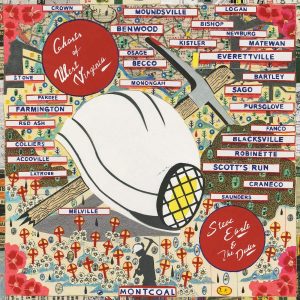 Steve Earle & The Dukes
Steve Earle & The Dukes
Ghosts Of West Virginia
Steve Earle has never been afraid to dig deep. Or mix art with politics. But the outspoken singer-songwriter takes his musical activism to a new level — and in a new direction — on Ghosts of West Virginia. Earle’s 20th studio outing (counting a pair of collaborative efforts) is one of his darkest and most dramatic works: A concept album about the disastrous Upper Big Branch coal mine explosion that killed 29 men in 2010. It’s also dramatic in the theatrical sense; Earle voices these songs from the perspective of the blue-collar miners and their families, forging empathy with his subjects instead of just preaching to the choir. Originally penned for a play called Coal Country and retooled here with full-band arrangements, these tales are pointed, passionate and potent — never more so than on It’s About Blood, when Earle recites the names of the miners who perished in the tragedy. Appropriately, these haunting stories are grounded in a rough-hewn assortment of timeless Americana — gothic Appalachian bluegrass, fingerpicked acoustic folk, bare-knuckled roots-rock, slapback-echo rockabilly, country balladry, even an a cappella piece midway between a gospel hymn and a work song. It all comes together into a masterful, moving and memorable creation from an artist who remains at the height of his powers — yet continues to push himself onward, upward and forward.
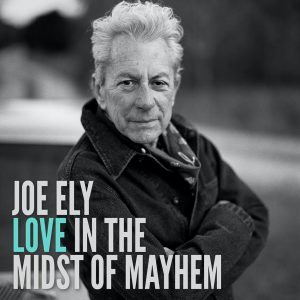 Joe Ely
Joe Ely
Love in the Midst of Mayhem
You can always count on Joe Ely to get the job done. And done beautifully. While scores of artists large and small are packing up their albums and fleeing the global pandemic, the Texas troubadour has used his enforced downtime to craft his first new studio release in five years. True to its title, the surprise release Love in the Midst of Mayhem — featuring previously unissued songs and recordings that he apparently unearthed and completed during the past few weeks of self-isolation — is a concept album about romance, hardship, fear, perseverance and reliance. The set list reportedly includes numbers from as far back as the 1970s and 1980s, along with several written in the past few years — like the aptly titled waltz You Can Rely on Me. Another number, All You Are Love, was apparently written in 2012 with fellow Flatlanders Jimmie Dale Gilmore and Butch Hancock. But to Ely’s credit, it’s not like you could definitively date any of these cuts from listening: They’re all as consistent and coherent as if they were penned last month. And of course, they’re all delivered in Ely’s soulfully sandy croon and defined by the earthy sincerity, straightforwardness and elegance that have always been part of his sonic and stylistic signature. Given their inspiration and subject matter, Love in the Midst of Mayhem naturally a ballad-heavy affair, but that’s OK — Joe still has plenty of time to put together a celebratory, rockin’ set for the day when life returns to normal.
 EOB
EOB
Earth
“The last thing the world needs is a shit album by me,” Radiohead guitarist Ed O’Brien has said. Indeed not. Good thing, then, that he didn’t make one. In fact, the simply and directly titled Earth — reportedly a fallback after copyright issues kiboshed his original idea Pale Blue Dot — might be one of the better solo albums to issue from the British art-rockers’ lineup. The nine-song disc was apparently inspired by a year living on a Brazilian farm, a trip to Carnival and a “eureka moment” involving the Primal Scream album Screamadelica. Fair enough; you can hear all those influences in this culture-jamming collection. Especially when O’Brien fuses hypnotic house grooves and strummy folk guitars with stylishly decorative synths, druggy sonics and tender, vaguely Thom Yorke-like vocals. As he alternates tightly wound numbers that wouldn’t be out of place on Radiohead albums with headnodding dance-rock grooveathons and intellectual soundscapes, O’Brien walks the line between accessible and experimental — and in the process, manages to tick off enough creative and commercial boxes to keep everyone happily relieved. Especially him, one suspects.
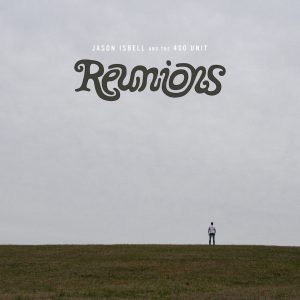 Jason Isbell & The 400 Unit
Jason Isbell & The 400 Unit
Reunions
Jason Isbell has come a long way. When he started out nearly two decades ago, he was the hard-drinking young-gun guitarist playing dive bars with Drive-By Truckers (which is where I first saw him, back in the band’s Southern Rock Opera era). These days, he’s older and wiser. Cooler and calmer. He’s embraced sobriety, marriage and fatherhood — all of which have also helped him mature into one of the most compelling and evocative singer-songwriters of his generation. That’s been made abundantly clear on his more recent Grammy-winning albums. And it certainly hasn’t changed on his seventh studio set Reunions, which is also his fourth with superstar producer Dave Cobb. Continuing to follow the therapeutic and personally revealing trail he’s been on for several years, these songs find Isbell once again sifting the ashes of his past, confronting and communing with a cast of ghosts and personal demons awaiting artistic exorcism. Not surprisingly, Reunions is also quieter, softer, more melodic and sleeker than some previous outings, focusing on hushed ballads, supple grooves and jangly Americana at the expense of the rangy, raw-boned roots-rockers of Isbell’s misspent youth. If I’m being honest, I miss those days and those songs a bit — I would like Reunions a little more if he cranked the volume, the tempo and the energy a little higher a little more often. But as he’s repeatedly shown, Isbell is more committed personal growth than crowdpleasing nostalgia. And who can blame him? As the poised, polished and powerful Reunions makes clear, he’s in it for the long haul.
 Mark Lanegan
Mark Lanegan
Straight Songs of Sorrow
“My heart is black as night,” Mark Lanegan claims a few minutes into Straight Songs of Sorrow. And maybe he’s telling the truth. But on the plus side, his mind has never been clearer and more focused. The former frontman for Screaming Trees, Queens of The Stone Age, Gutter Twins, Twilight Singers and plenty more penned this dozenth studio album as a companion to his memoir Sing Backwards and Weep. I haven’t seen that yet, but if it’s half as unflinching and harrowing as some of these musical confessions, I wouldn’t read it alone in the dark. Over a mixed backdrop of skittery electro-rock, fingerpicked acoustic folk, lush synth-pop, post-modern Americana, junkie gospel and more, Dark Mark leads you on a grim personal travelogue of drugs and violence, blood and beauty, death and destruction, paranoia and persecution. And even though there are the occasional glimpses of light at the end of the tunnel, by the time he’s through, he makes Iggy Pop and Lou Reed seem like Donny and Marie. “I spent my life trying every way to die,” he confesses at one point. “If I had a razor, I would cut you everywhere,” he warns at another. Yikes. No wonder he can’t seem to keep a band together. On well. At least you can’t accuse him of not giving it to you straight.
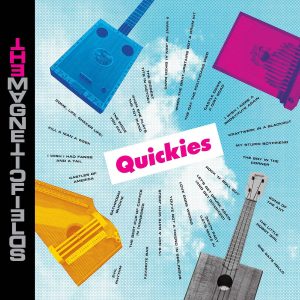 Magnetic Fields
Magnetic Fields
Quickies
This one actually dropped digitally a week before I reviewed it, but because the physical release was delayed, it slipped past me. But take my word for it: You won’t regret doubling back to hear wickedly waggish indie-pop wit Stephin Merritt’s latest entertainingly high-concept piece: A set of 28 short, sharply barbed cuts about stupid boyfriends, bathroom quickies, biker gangs, rock ’n’ roll guys, castles, devils, ants, dead politicians and the biggest tits in history — among other topics. Sometimes less really is more.
 Man Man
Man Man
Dream Hunting in the Valley of the In-Between
“Maybe I waited far too long,” Man Man main man Honus Honus posits on his first album in nearly seven years. Well, yes and no. Yes because we all certainly would have enjoyed hearing from him sooner. But no because this sixth studio set proves to be well worth the lengthy delay. On the fittingly titled Dream Hunting in the Valley of the In-Between, the singer-songwriter born Ryan Kattner leads his new crew on another expedition to the outskirts of orchestral-rock eccentricity and eclecticism. And as he unspools his weirdly inspired (and inspiredly weird) ditties about Unsweet Meat, Animal Attraction, living on Cloud Nein and finding your Inner Iggy, he makes Father John Misty seem like Pat Boone. So to hell with the wait. Despite being out of the musical loop for far too long, Honus still manages to live up to another apt lyric here: “We somehow always land on our feet.” That’s why he’s the Man Man man, man.
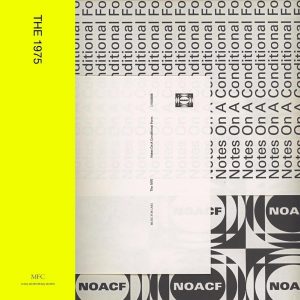 The 1975
The 1975
Notes On a Conditional Form
Nobody is going to accuse The 1975 of pandering to fans. Though some might accuse Matt Healy and co. of trying to overload them. The British indie superstars’ monumentally ambitious fourth full-length Notes On a Conditional Form — the wildly anticipated sequel to their late 2018 knockout A Brief Inquiry into Online Relationships — is the sort of disc that makes its predecessor (not to mention recent releases from their peers and competitors) seem like a fluffy pop lark. Over the sprawling course of 22 songs and 80 minutes, the freewheeling, ever-changing epic furiously pinballs unpredictably between sounds, styles and sonic settings. Boisterous post-punk and sunny indie-pop, experimental electronica and earthy roots, arty rock and ambient soundscapes, ’80s synth-pop and earnest folk, gospel and Greta Thunberg speeches; it’s all here, along with plenty more. And as usual, most of it is every bit as creative, cool compelling as it is confounding and challenging — sorta like Radiohead, but if they cracked a smile and cranked out an unironic house track every once in a while. Not surprisingly, the boldly unclassifiable album ends up feeling more like a shuffled playlist than a pointed, focused work. Then again, maybe all that eclecticism and diversity is the point. Who knows? Maybe Healy. So go ask him. You ask me, all I know is that Notes On a Conditional Form should keep their fans occupied until The 1975 decide what form their next album should take. As if they could ever settle on just one.
 Lido Pimienta
Lido Pimienta
Miss Colombia
Some people prefer music that’s the sonic equivalent of comfort food — safe, familiar, easy to swallow. Others have a more adventurous palate. The latter group will want to sink their teeth into Lido Pimienta’s Miss Colombia. And they will come away both satisfied and hungry for more. The Toronto singer-songwriter’s third album and the followup to her acclaimed 2016 release La Papessa, this daring and dynamic creation presents a fantastic, innovative and stirring fusion of ambition and artistry, novelty and nostalgia, timely and traditional. Over her signature fusion of cumbia, electronica and classical — which she has descriptively dubbed industrial reggaetón — the candid Pimienta tackles everything from injustice in her Colombian homeland to her own loves, losses and personal traumas. Of course, unless you are fluent in Spanish, you’ll need to check out some lyrical translations to truly appreciate and understand all of that. And while you should make the effort, you don’t necessarily have to. You can get almost as much pleasure out of the disc just from immersing yourself in the futuristic and unique sounds that dominate the disc’s first half, or by soaking up the transfixing traditional grooves and percussion that dot its second part. But however well you get to know her, you’ll come away quite understandably and rightly convinced that Miss Colombia is unmistakably a winner.
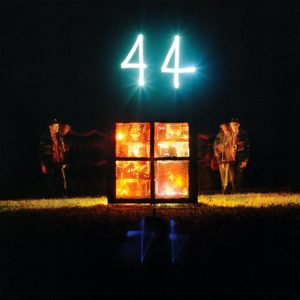 Joel Plaskett
Joel Plaskett
44
Joel Plaskett contains multitudes. So no wonder he creates them too. For those who aren’t already up to speed, his latest release 44 is the concept-loving Halifax singer-songwriter’s biggest project since the triple-album Three a decade ago: A set of four distinctively different discs featuring 44 songs recorded in four different cities with 33 guest musicians, released on the last day of his 44th year. Clearly, that’s a whole lot of Plaskett. But if anybody can pull off a flex like this, it’s this restlessly and relentlessly eclectic and prolific artist (and former Thrush Hermit frontman). Not surprisingly, it’s got a little bit of everything and a little something for everybody: Rock and pop, country and folk, loud and quiet, electric and acoustic, earthy and spacey, sincere and silly, gems and duds, studio and live, full-band productions and lo-fi solo fare. It can and probably should take you at least a few weeks to soak it all in, get it all down and pinpoint your favourites — so far, I’m kind of partial to the harder-rocking second disc and the eccentric and experimental fourth disc. But I’m sure that will change in due course. Thankfully, we’ve all got plenty of time to dig in before he ups the ante with 555 in another 10 years.
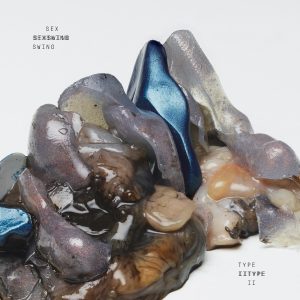 Sex Swing
Sex Swing
Type II
You know those skinny little Scandinavian sissy-boy metal bands? The ones with the corpse paint and the studded leather outfits who try to act all scary? I suspect the British brawlers and bruisers of Sex Swing could wipe the floor with the lot of them and not break a sweat. Assuming those church-torching pussies even had the balls to take them on in the first place. Which they don’t — and surely wouldn’t once they heard the firm’s fearsome and ferocious sophomore album Type II. Between the unstoppable momentum and swaggering menace of their low-slung grooves, the imposingly noisy wall of grinding guitars and bass, the distorted, broken-megaphone sound of their vocals and their impenetrably dense no-fi production, these seven relentless displays of attitude, aggression and antagonism are the musical equivalent of being slowly stalked by a feral predator. Or at least various members of Swans, Stooges and PigsX7. But with a saxophone. Duck and cover.
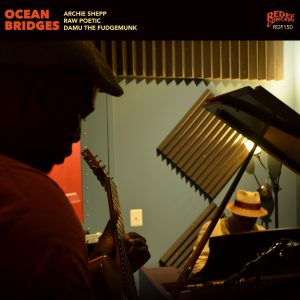 Archie Shepp / Raw Poetic / Damu The Fudgemunk
Archie Shepp / Raw Poetic / Damu The Fudgemunk
Ocean Bridges
There probably aren’t a lot of rappers who want to make an album with their uncle. Then again, there probably aren’t a lot of rappers who have a jazz legend like Archie Shepp in their family. The saxophone master and his nephew Jason Moore (aka Raw Poetic) — along with a band led by percussionist, DJ and producer Earl Davis (aka Damu The Fudgemunk) — effortlessly join forces on this intimate improvised collaboration, loosely jamming over mellow but snappy grooves that hit the sweet spot between their individual worlds, philosophies, approaches and styles. The casually flowing tracks, the nimble interplay of instruments and vocals, the between-song segments where Shepp holds court on everything from politics to production — they all fuse into an intriguing and engaging musical hybrid unlike anything else out there right now. You can only imagine the kind of album they could come up with if they actually wrote songs and rehearsed ahead of time.
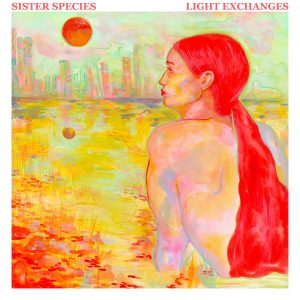 Sister Species
Sister Species
Light Exchanges
In a world of copycats and clones, Sister Species are a unique musical hybrid. The Minneapolis chamber-pop septet led by smoky singer-songwriter and accordionist Emily Kastrul boasts a sui generis lineup that includes three — count ’em, three — trumpet players along with the standard guitar and rhythm section. That triple-strength brass powerhouse turns out to be one of the band’s secret weapons, topping Kastrul’s smart, stylish, subtle and sophisticated songwriting with everything from lushly layered harmonies and intricately syncopated rhythmic counterpoint to impressionistic between-song musical vignettes. Their work adds a high-flying, jazzy element to the gorgeously grounded proceedings, elevating Light Exchanges beyond the norm and creating an album that occasionally comes tantalizingly close to answering the age-old musical question: What would it sound like if Joni Mitchell sang for Chicago?
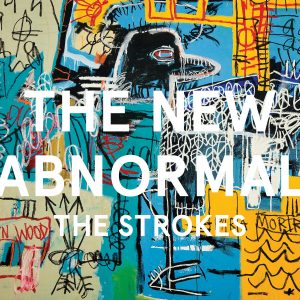 The Strokes
The Strokes
The New Abnormal
Speaking of abnormal: It feels a little weird to think of The Strokes as a classic rock band. And I suspect Julian Casablancas and his cohorts might take umbrage at the notion. But like it or not, the NYC indie-rock hipsters fit the bill of a successful heritage-rock outfit. They’ve been together for a couple of decades now. They’ve amassed a catalogue of chart-topping albums and hits (along with the mandatory slate of so-so solo albums). They’ve influenced countless bands in their wake. They’ve gone on hiatus and come back. They’ve maintained their original lineup. They’ve obviously got an instantly identifiable sound. And like the old pros they are, they know when it’s time to quit dicking around and give the fans what they want. That seems to be the credo behind their sixth full-length disc and first album in seven years, the excellently titled The New Abnormal. After the uneven landscape of 2011’s Angles and its subdued 2013 followup Comedown Machine, this compact, cohesive and confident nine-song set feels like something of a deliberate return to more familiar form. The guitars chug and chime and clang. The rhythm section is tight and punchy. Casablancas busts out his familiar mix of scratchy crooning, anthemic warbling, falsetto excursions and deadpan Lou Reed observation. The songs are mostly catchy and pitched right down the middle, with plenty of ’90s indie-rock nostalgia on display — along with enough new ideas to keep it from feeling like a rehash or a cash-in. For my money, it could use a few more upbeat numbers and a few less moody tracks. Even so, this is the most accessibly Strokesy Strokes album to come along in a while. And if that’s the new normal, it should be pretty easy to get used to. It will be even easier if they don’t keep us hanging several more years for the next one. Though that would be classic Strokes.
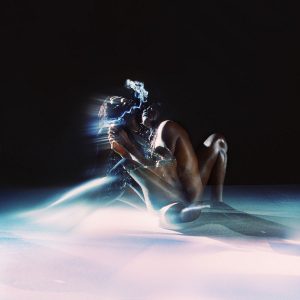 Yves Tumor
Yves Tumor
Heaven To A Tortured Mind
Restless. Fearless. Boundless. They’re all fitting adjectives for singer-songwriter Sean Bowie, the musical visionary behind Yves Tumor. Which is not to suggest for a second that his fourth album Heaven To A Tortured Mind embraces the doctrine that less is more. On the contrary. Bowie/Tumor doesn’t skimp on anything over the course of these 12 tracks. Not on style. Not on substance. Not on sonic artistry. And certainly not on sexuality. Heaven To A Tortured Mind comes off like one long 36-minute come-on as Tumor tries to get inside your pants, brain and soul with a seductive cocktail of post-modern art-rock, get-down freak-funk, mind-bending psychedelia and winsome soul-pop. If I had to liken this to anyone or anything, it would be Prince at his sexiest fronting TV On The Radio at their artsiest. But that doesn’t really cover it. Because Yves Tumor is ultimately unlike anyone else. Which reminds me of one final fitting adjective for him: Peerless.
 Butch Walker
Butch Walker
American Love Story
Butch Walker likes to mix it up. The former Marvelous 3 frontman (remember Freak of the Week?) and current superstar producer (he’s been behind the glass for everyone from Green Day and Weezer to Avril and Carly Rae) has also made a slew of great albums under his own steam and name over the years. And each has been different than the last. But none has been quite so different (or ambitious) as this. American Love Story is a full-length, full-blown rock-opera narrative about a second-generation Red State redneck who gradually evolves into a better man, thanks thanks to the healing powers of karma, love and family. And since rock operas are nothing if not nostalgic by their very nature of their existence, the tale is set to a vintage-sounding soundtrack inspired by ’80s rock, pop and funk — and accompanied by a full-length video. Nope, I’m not kidding. And neither is Walker, clearly — American Love Story is the most focused, topical, and multi-dimensional work of his already-impressive and restlessly diverse career. Granted, give the subject matter, political leanings and sonic setting, it’s likely to turn off as many folks as it wins over. Of course, something tells me Walker might just appreciate such a mixed reaction.
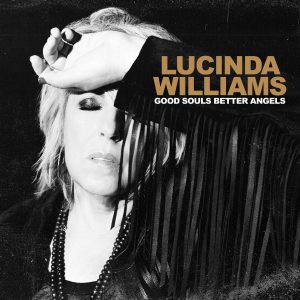 Lucinda Williams
Lucinda Williams
Good Souls Better Angels
So much for This Sweet Old World. Less than three years after lovingly revisiting her darkly beautiful 1992 masterpiece, Lucinda Williams’ nostalgic mood has definitely soured on her 14th studio album. Despite its uplifting title, Good Souls Better Angels is an angry record that’s firmly grounded in the here and now of life below heaven. The 67-year-old singer-songwriter comes out swinging and pulls no punches as she lashes out at her country’s liar-in-chief, his cadre of lunatics and hypocrites, abusive men she’s known and pretty much anyone else fool enough to get in her way or on her bad side. Not surprisingly, the hour-long set is also her most musically aggressive in years, with her ragged, rugged drawl underpinned by raw-boned, bare-knuckle blues laced with everything from noisy psychedelia and gritty garage-rock to ominous cellos. Recorded in just two weeks, it might be the leanest, meanest and most powerfully pointed album she’s made. Along with one of the most solid and satisfying. Ignore it — and her — at your own risk.
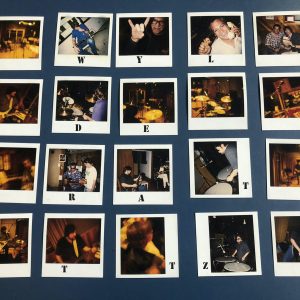 Wylde Ratttz
Wylde Ratttz
Wylde Ratttz
Punk supergroups don’t get more super than this. You’ve got members of The Stooges, Mudhoney, Sonic Youth, Minutemen, Gumball and more. Plus you’ve got a set list of no-bullshit, balls-out, pedal-to-the-metal fuzz-punk nuggets that wouldn’t have been out of place on any of their albums. In fact, they still sound cutting-edge and fucking awesome more than two decades after being recorded. I can only assume the usual music-biz legal bullshit prevented this gem from coming out back when it should have. And I have no idea why it suddenly turned up out of the blue (on April Fool’s Day, no less). But hey, beggars and choosers. And better late than never. Bottom line: This is one of the best punk albums you’ve never heard. Until now. Crank this sucker to the max and make up for lost time.
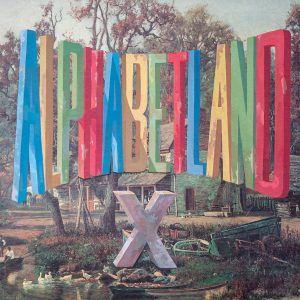 X
X
Alphabetland
Talk about a wild gift. Some 35 years after their last studio album Ain’t Love Grand, the original lineup of L.A. punk pioneers X — singer Exene Cervenka, her ex-husband bassist John Doe, rockabilly-rebel guitarist Billy Zoom and powerhouse drummer DJ Bonebrake — return with this surprise release. An even bigger surprise: It’s pretty damn fantastic. Cervenka and Doe remain the Johnny and June of punk rock, wrapping their ragged voices around each other with the same desperate passion as a generation ago. Zoom’s crunchy, metallic guitar riffs still sound like they’re being delivered with a mile-wide grin and a stance to match; and Bonebrake continues to manhandle his kit with economy and focus. And even though these lyrics were written long before lockdown, prescient titles like I Gotta Fever, Strange Life and Goodbye Year, Goodbye help make the album eerily timely. Best of all, several of these 11 cuts — which include updates of the vintage numbers Delta 88 Nightmare and Cyrano deBerger’s Back, along with a closing poem from Exene — are delivered with the same white-hot fusion of sweaty urgency and reckless abandon that helped define the band back in the halcyon days. Life may not be too grand right now, but this sucker most certainly is. Against all odds, X hit the spot. Again.









